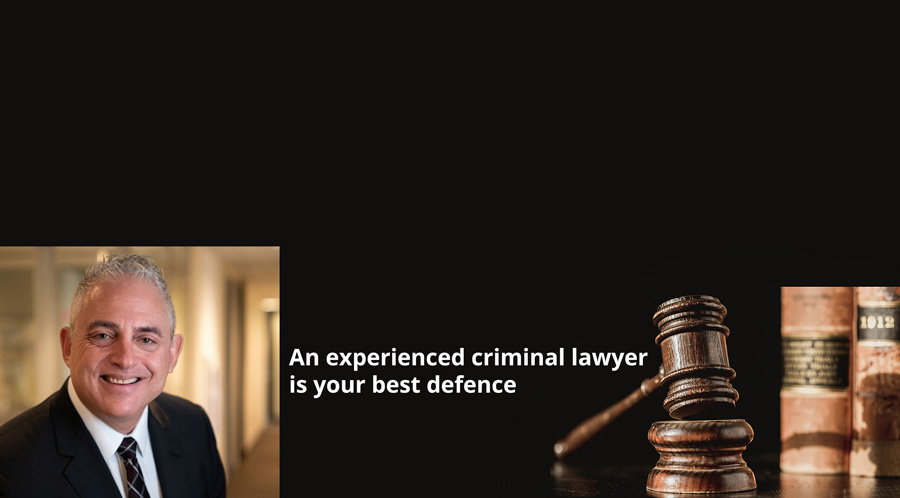Assault Lawyer
Contact Montreal assault lawyer Steven Slimovitch today if you need legal representation
Steven Slimovitch achieves positive results for his clients facing assault charges by employing a number of effective strategies that often result in the charges being withdrawn by the prosecution or dismissed in court by the judge.
Assaults arise in a variety of contexts, often between law abiding citizens involved in an unexpected, heated, and often emotionally charged, dispute. A conviction for assault carries serious employment, travel, immigration, and relationship consequences. When confronted with allegations of assault, hiring an experienced and persuasive assault lawyer as your counsel is vital to a successful defence outcome.

Is harm an element of an assault charge?
A person need not harm someone for an assault to occur. A person may commit an assault although that person exerts no degree of strength or power when touching the victim although the force must always be offensive or an affront to an individual’s dignity. For example, a simple push or pinch in some cases may be sufficient to establish a criminal assault.
What if I accidentally hit someone?
The application of force must be intentional. Accidental contact with another individual is not legally considered an assault. An important caveat to this exists in the case of accidentally hitting one person in an attempt to hit another. It does not matter who the intended victim is, as long the offender intended to apply force to any individual, it is legally considered an assault.
There are five main types of assault which carry their own set of consequences for the offender:
- Simple assault
- Assault with a weapon and assault causing bodily harm
- Aggravated assault
- Spousal / Domestic violence
- Sexual assault
Simple Assault
The Criminal Code states that a person commits an assault when he or she without consent:
applies force intentionally to another person, directly or indirectly, or, attempts or threatens, by an act or a gesture, to apply force, or, causes the person to believe that he or she has, the present ability to effect their purpose; or, while openly wearing or carrying a weapon or an imitation, he or she accosts or impedes another person or begs.
Assault with a Weapon and Assault Causing Bodily Harm
The difference between an assault and an assault with a weapon is the vehicle/tool/object used to deliver force. Generally, an assault or simple assault is caused by the application of force from a person’s extremities such as hands, legs, or feet. An assault with a weapon generally involves the application of force with an inanimate object such as a stick, a bat, a knife, a thrown object, and includes animals being ordered to attack another person.
An assault that causes any hurt or injury that is not transient or trifling in nature and interferes with the complainant’s health or comfort will meet the definition of bodily harm.
Aggravated Assault
In order for an assault to meet the definition of an aggravated assault, the injury must be much more substantial in nature. Any injury that wounds, maims, disfigures or endangers the life of another meets the definition of an aggravated assault.
The degree of harm caused by an assault will likely dictate the type of sentence imposed by the judge. While some simple assault charges may be resolved with an absolute discharge, an aggravated assault charge often results in a jail sentence the length of which depends on multiple factors including but not limited to; severity of the injuries suffered by the victim, prior offenses …
Possible Defences to an Assault Charge
An experienced assault lawyer can identify a number of valid defences to an assault allegation. The following is a non-exhaustive list of potential defences to an assault charge.
Consent
For an assault to have occurred, the prosecution must prove that the application of force by the accused person was done without the consent of the party to whom the force was applied. Consent may be expressly given or implied. In many instances, consent is implied, and this may be determined from the circumstances surrounding the offence.
Generally, there is an implied consent to pat a co-worker on the back or shake hands with a relative stranger; whereas fraudulently obtained or forcefully extracted consent is really no consent at all. In addition, no one may consent to be killed or seriously injured. Consenting to fight does not normally imply permission to inflict significant bodily harm. Thus, where the offender intends, or actually causes, significant harm or death, consent is not a valid defence to the assault.
Mistaken belief in consent
Even if the prosecutor proves that consent did not actually exist, it is still available to the accused to argue that they honestly believed the aggrieved party had consented to the application of force. Even an honest but mistaken belief in consent will also afford a defence to an assault charge.
Self-Defence
The law recognizes that a person is justified in using force or threatening force in certain circumstances to protect either themselves, close family members, or their property. The basic rule permits the use of force if it is deemed reasonable in the circumstances. Whether the use of force is reasonable is entirely fact-specific and can depend on a number of different factors.
In terms of self-defence, you can only defend yourself to the point reasonably necessary to prevent an assault or its repetition. The infliction of grievous bodily harm or death while defending yourself can only be justified under narrow circumstances, requiring that there be a reasonable apprehension of death or grievous bodily harm to you and no other way to preserve your safety. Interestingly, if you are relying on the defence of self-defence, you are entitled to adduce evidence of a complainant’s propensity for violence, regardless of whether you were aware of it at the time of the incident.
Consequences of an Assault Offence Conviction
The consequences of being found guilty of an assault charge are significant. Upon a finding of guilt, one may receive a criminal record and be sentenced to a period of incarceration. Generally, the greater the harm suffered by the victim, the harsher the penalty.
What Steven Slimovitch Can Offer You
When you or someone you know has been charged with assault or a similar type offence, it is important to retain the services of an experienced criminal defence lawyer as soon as possible. Steven Slimovitch is a highly skilled and experienced criminal defence lawyer with a very impressive track record in this area. He has defended countless people accused of assault and related offences and has successfully supported them throughout the legal process and enabled them to get their lives back on track.



